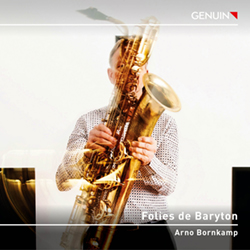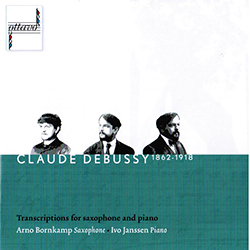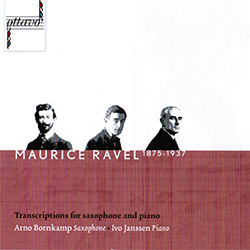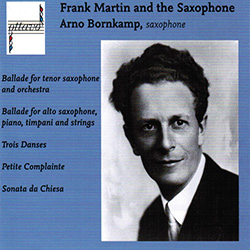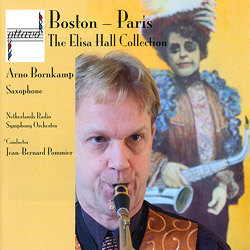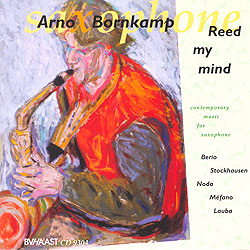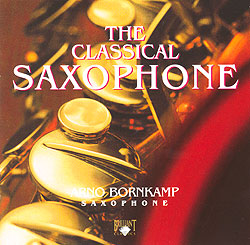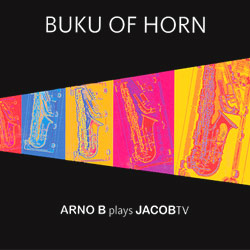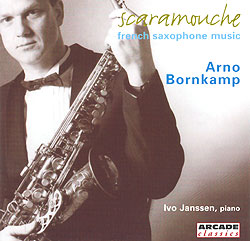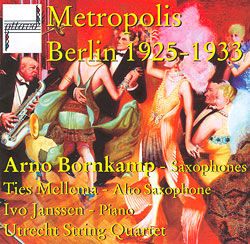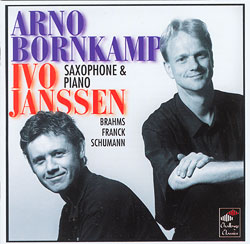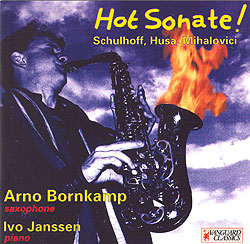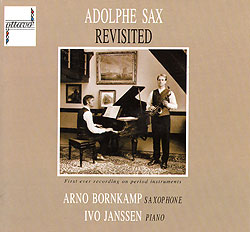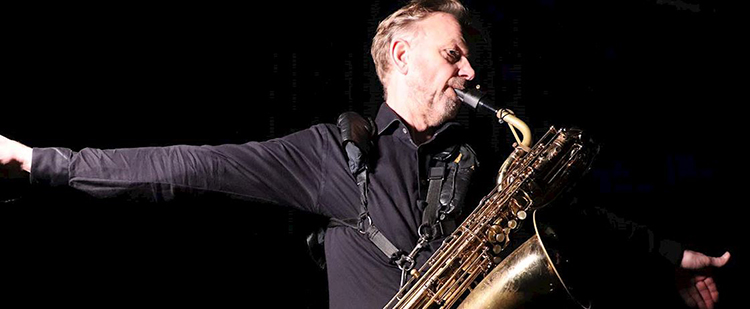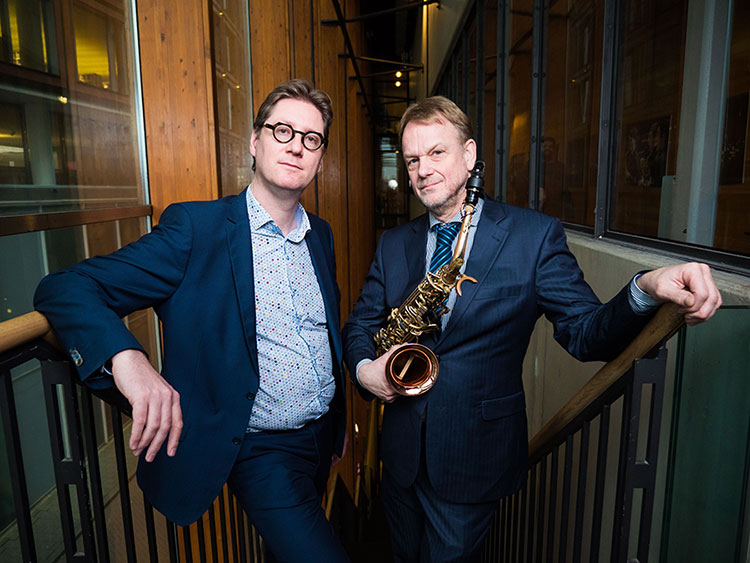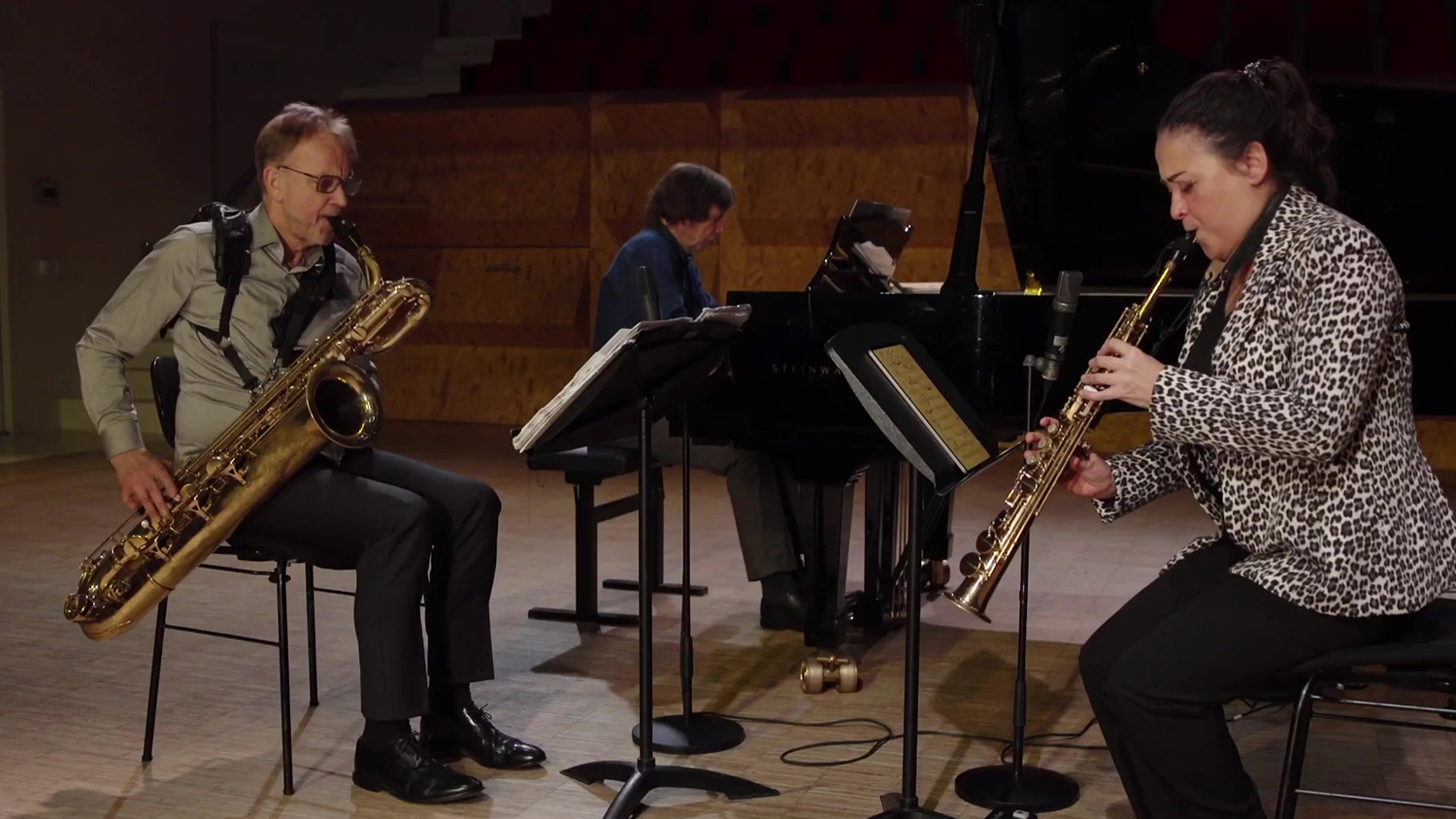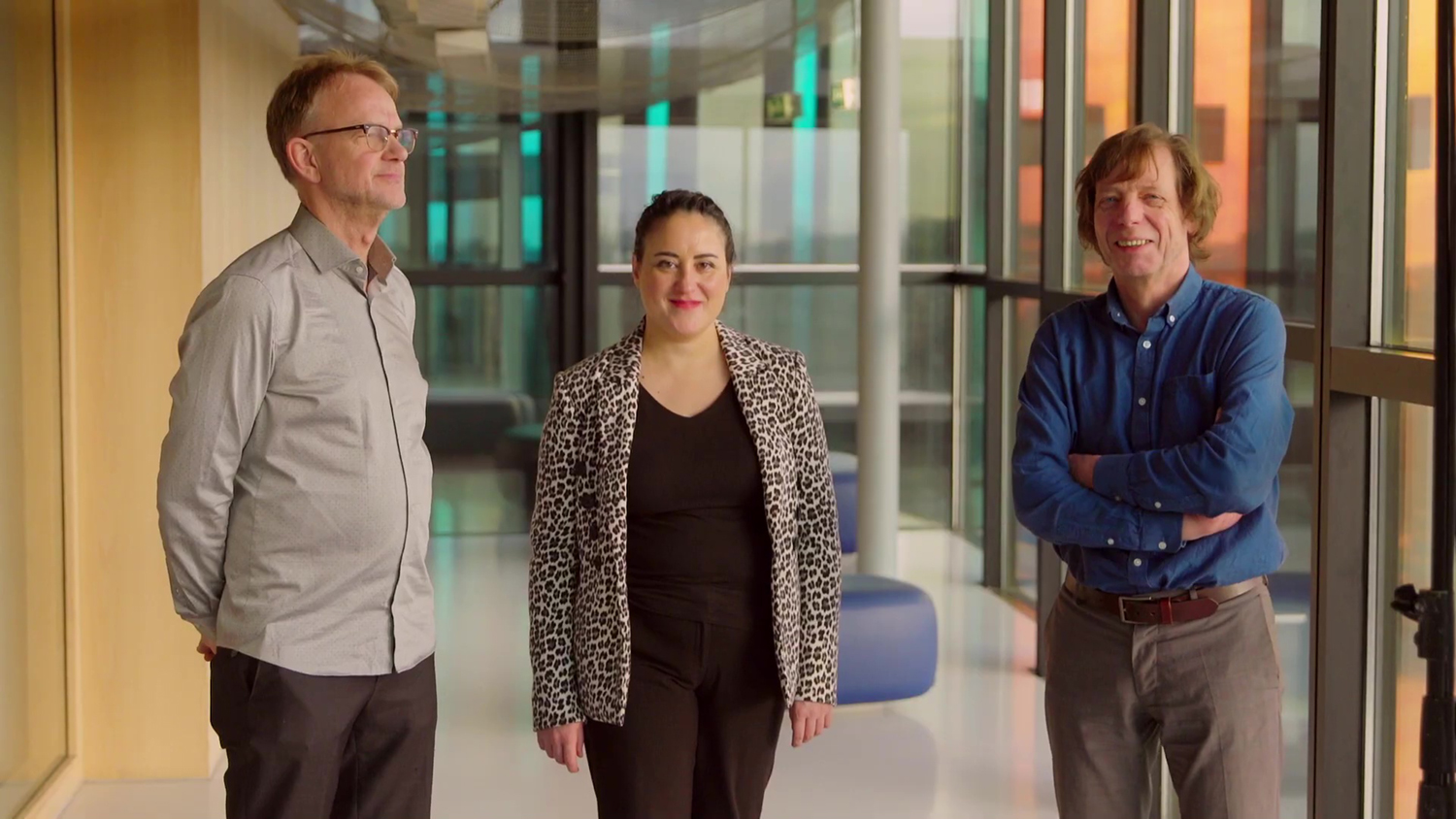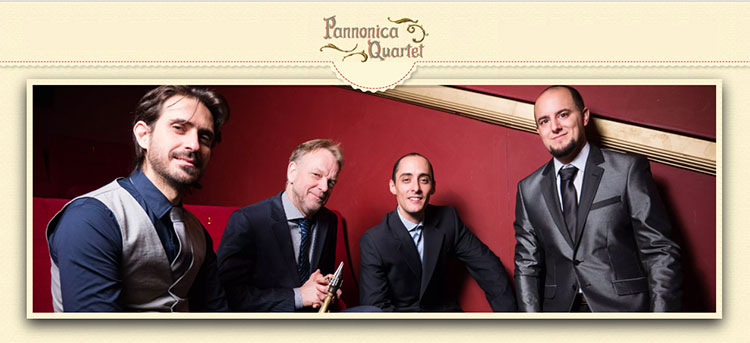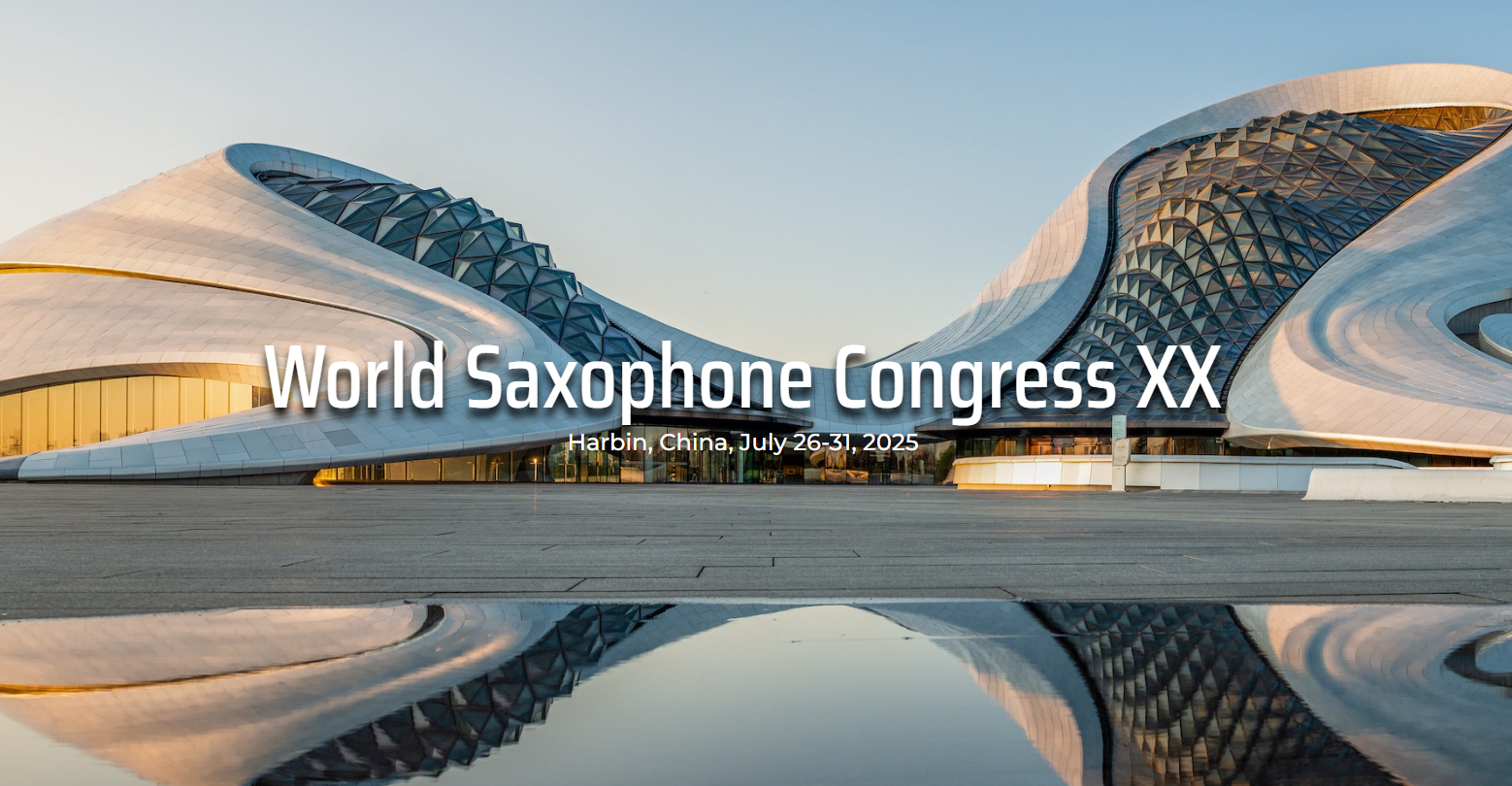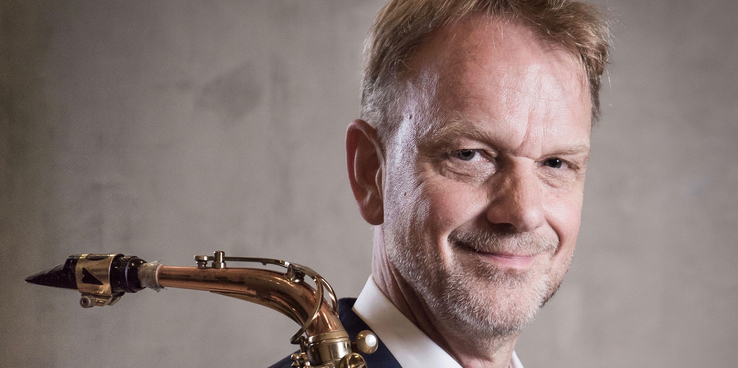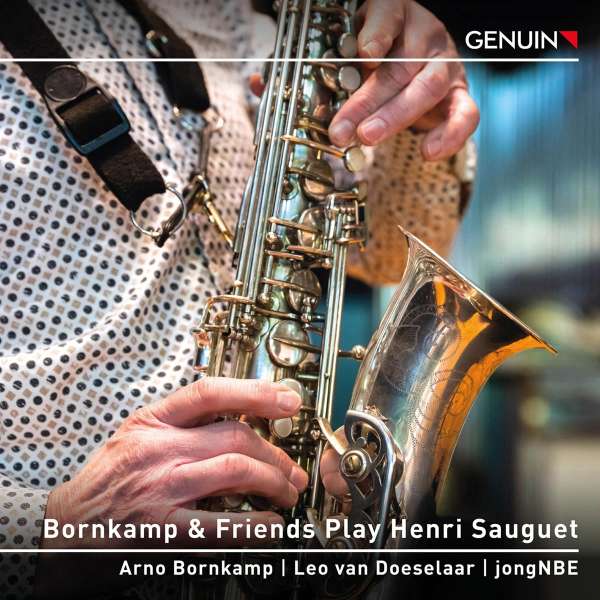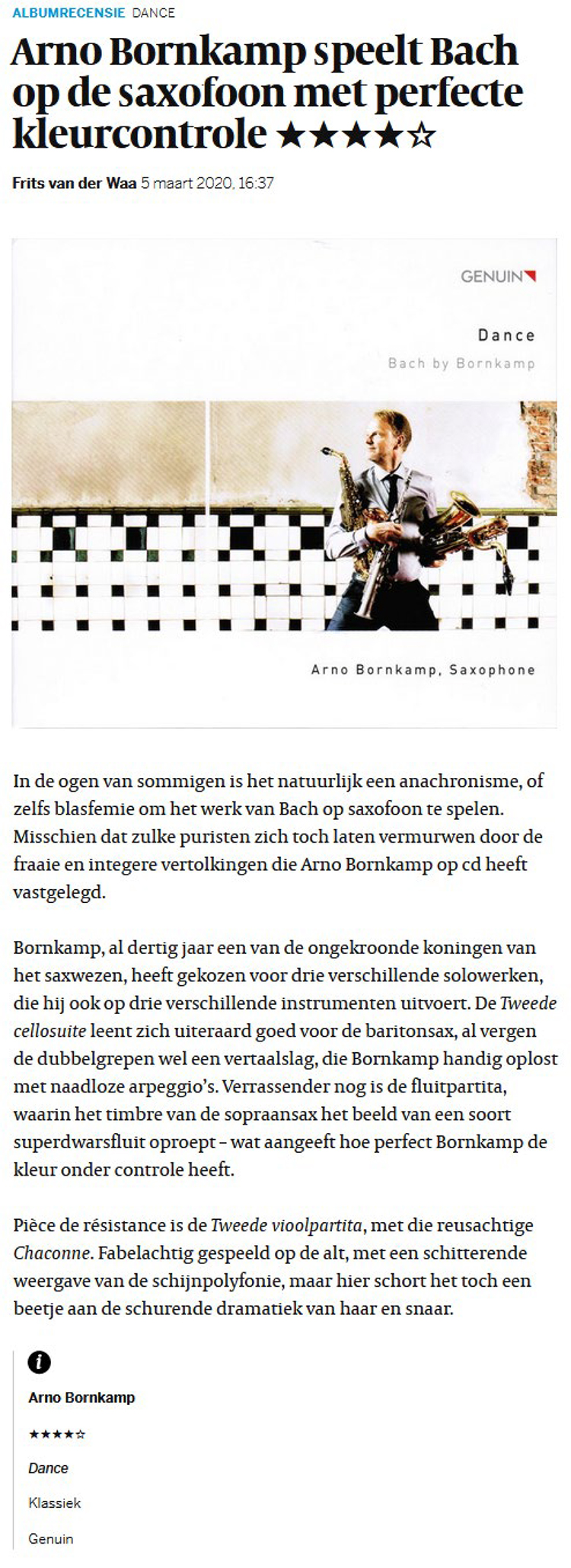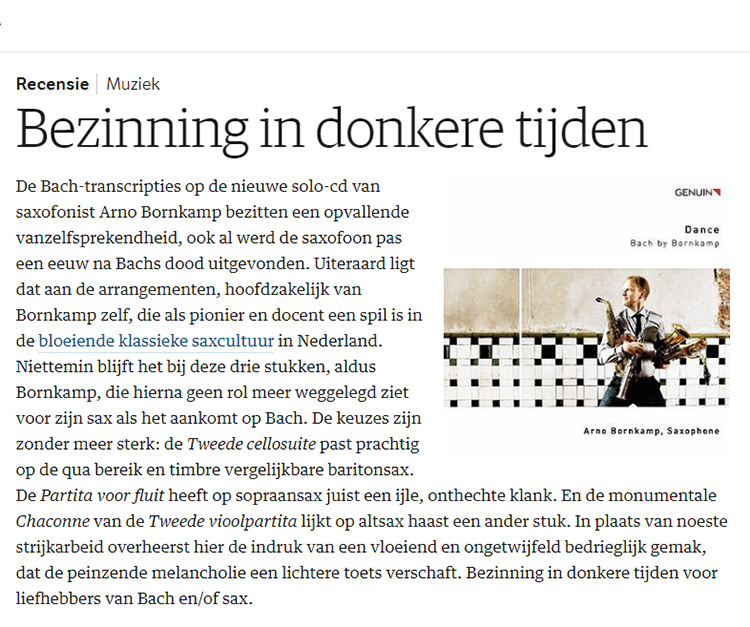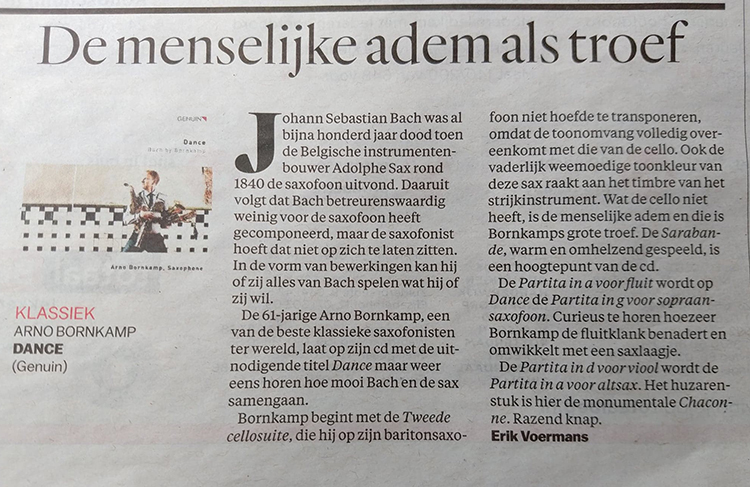Biography
Classical saxophonist Arno Bornkamp is a unique figure in both the saxophone world
and the Classical music world in general. In his career, now spanning nearly 40 years,
he has amazed the music world of his energetic and stylish interpretations, full of
lyricism and passion. He believes in the saxophone as an instrument with an infinite
amount of nuance and colors, reflecting the human soul with all its shadings of light and
dark. Bornkamp is a natural storyteller on his instrument, and offers a highly personal
take in his interpretations of all the music he plays.
Arno Bornkamp's saxophone style is strongly rooted in the 20th century French
tradition: his primary teachers were, in addition to Ed Bogaard, the French saxophone
legends Daniël Deffayet and Jean-Marie Londeix. Nonetheless, he was primarily
influenced by the Dutch musical climate of the 1980s, a time when traditions were
overthrown, dogmas were broken and classical music reached a huge audience.
Bornkamp flourished greatly in this cultural climate, and together with Johan van der
Linden, André Arends and Willem van Merwijk, he founded the Aurelia Saxophone
Quartet (1982-2017). For a long period this quartet was one of the world’s greatest. One
of their merits was opening the doors to make string quartet literature accessible to the
saxophone quartet, such as the quartets by Debussy and Ravel, which they usually
performed without sheet music. The Aurelia Quartet, later with Niels Bijl, Femke IJlstra
and Juan Manuel Dominguez, has left a true legacy, which still serves as a source of
inspiration for young quartets.
Also noteworthy is Bornkamp's long collaboration with pianist Ivo Janssen. Janssen,
himself a gifted soloist, was the perfect musical foil for Bornkamp. Their interpretations
of original repertoire and arrangements, many of which have been released on CD, are
still considered exemplary. More recently, Bornkamp has started working with younger
musicians: the Voyager Trio with cellist Pamela Smits and pianist Tobias Borsboom, the
Duo Calvadoré with the Flemish pianist Jan Lust, and the Pannonica Saxophone
Quartet, which specializes in playing Argentine Tango.
His infectious way of making music makes Arno Bornkamp the ideal soloist. He has
given more than 200 performances as soloist with orchestra, wherein he collaborated
with conductors such as Hans Vonk, Jac van Steen, Lucas Vis, Thierry Fischer,
Bernhard Klee, Jean-Bernard Pommier, Andrey Boreyko, Pierre-André Valade and
others. His repertoire spans from the standard repertoire for saxophone to new, often
commissioned concertos. The 'Tallahatchie Concerto' by Jacob ter Veldhuis ranks highly
in the latter category, with Bornkamp giving many performances around the world. Quite
recently, in July 2018, he gave the premiere of 'Leyendas' by Guillermo Lago
(pseudonym of Willem van Merwijk), which was warmly received by the audience during
the performance of the XVIII World Saxophone Congress in Zagreb.
For approximately 25 years, orchestras such as the Royal Concertgebouw Orchestra,
the Residentie Orkest, Holland Symfonia, and various radio orchestras have used
Bornkamp's services as a substitute player, giving him the privilege of performing
orchestral repertoire under such greats as Carlo-Maria Giulini, Ricardo Chailly, Mariss
Jansons, Daniele Gatti, Mstislav Rostropowitsch, Heinz Holliger and Bernard Haitink.
Bornkamp very much loves the tradition of the saxophone. He has built up a small
collection of historical instruments, which enable him to perform older repertoire in an
historically informed way, in both solo projects and also with the Flemish orchestra
Anima Eterna. However, he has a particular fondness for new music: In total, Bornkamp
has collaborated on more than 150 premieres, both as a soloist and chamber musician.
Initially inspired by leading composers such as Luciano Berio and Karlheinz
Stockhausen, he later built deep, long-term, and productive musical relationships with
composers such as Ryo Noda, Christian Lauba, Guillermo Lago, Santiago Baez and
Jacob ter Veldhuis, frequently performing many of their works.
Arno Bornkamp finds it essential to pass on his know-how to new generations of
musicians, teaching at the Conservatory of Amsterdam where many of his students put
his ideas into practice. He is also regularly invited to give master classes all over the
world.
Arno Bornkamp has released dozens of CDs under his own name, with the Aurelia
Quartet, and in the context of other projects. His latest CD project is a solo CD with
music by Johan Sebastian Bach, which will be released by the German label Genuin in
February 2020.

